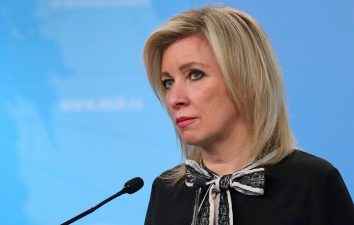Niger expects to export its first barrels of crude oil through a newly established Niger-Benin pipeline in January, as stated by the country’s military leader, Abdourahamane Tiani, on state television.
The export pipeline project, supported by PetroChina, was inaugurated on November 1, connecting Niger’s Agadem oilfield to the Benin port of Cotonou.
Storage tanks in Cotonou are currently being filled and are expected to be completed by January.
Niger is planning for a refinery which will process Nigerien crude on Nigerien soil.
The export pipeline project, supported by PetroChina, was inaugurated on November 1, connecting Niger’s Agadem oilfield to the Benin port of Cotonou, Reuters reported.
Tiani mentioned in an interview on Niger’s RTS channel on Sunday that the storage tanks in Cotonou are currently being filled and are expected to be completed by January, marking the beginning of the commercialisation phase.
Niger is set to receive 25.4% of the 90,000 barrels per day (bpd) slated for export through the pipeline. The country currently operates a small oil refinery with a capacity of 20,000 bpd, primarily serving the domestic fuel market.
Expressing the country’s aspirations, Abdourahamane Tiani, the military leader who assumed power following a coup in July, emphasised the goal of refining more oil locally.
Tiani stated, “Our desire is not to market crude oil. We want to move towards a refinery which will process Nigerien crude on Nigerien soil.” He added that Niger has not benefited enough from its natural resources.
De-westernising Niger
Niger has been trying to de-westernize its administration and free its country from any colonial influence even in economic matters.
Since the coup, regional and international bodies have imposed sanctions on the country, causing strain on its economy.
In October, Niger’s budget took a huge 40% hit following its coup and international sanctions. The country’s debt also climbed to $8.5 million. The country’s debt escalated to $8.5 million. These economic realities stress the need for alternative revenue-generation strategies.
Last month, Niger initiated the operation of its mega solar power plant, mitigating the power shortages brought about by Nigeria’s exit from its power sector.
The country has collaborated with Burkina Faso and Mali to propose the establishment of a confederation, marking a step toward their long-term objective of uniting the West African neighbours within a federation.
In late November, the economy and finance ministers of Niger, Burkina Faso and Malionvened recommended the establishment of a stabilisation fund, an investment bank, and a committee to examine an economic and monetary union. BUSINESS INSIDER




